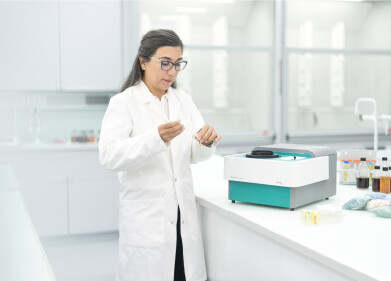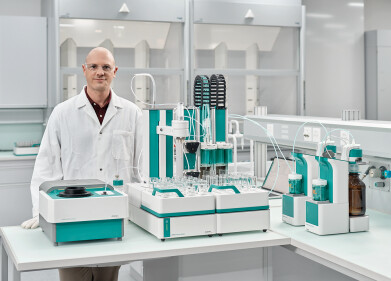Mass Spectrometry & Spectroscopy
Has Drug-Resistant Malaria Spread to the UK?
Feb 10 2017
Modern medicine may be incredible, but that doesn’t mean some diseases don’t slip through the net. For the first time, a handful of British patients have been diagnosed with a drug resistant malaria strain known as Plasmodium falciparum. The alarming findings were reported in the journal Antimicrobial Agents and Chemotherapy, and confirm that despite the best efforts of researchers, drug treatments aren’t a ‘cure all’ solution.
The patients were treated at the London School of Hygiene and Tropical Medicine, with all four having recently returned from Africa. After showing signs of contracting malaria, they were treated with a combination drug known as artemether-lumefantrine. After six weeks their bodies hadn’t responded, and they were all readmitted for recurrent symptoms. Doctors found elevated levels of the malaria parasite in their bodies, and prescribed an alternative drug.
A global trend?
While the secondary drug did cure all four cases of malaria, the incident has led to serious concerns over whether this could be the onset of a global pattern. As all four patients were immune to the widely-used artemether-lumefantrine drug, doctors are concerned that an epidemic could be on the horizon.
“Artemether-lumefantrine is the recommended treatment for non-life threatening cases of falciparum malaria in the UK,” explains Dr Colin Sutherland, lead researcher of the study. “This strategy is considered to be working well, however, our findings suggest that it might need reviewing – fortunately, there are other effective drugs available."
Doctors call for urgent review
The findings back up previous studies confirming that other strains of malaria are also showing signs of resistance to common drugs. The trend is particularly prevalent in Southeast Asia, with parasites using mutations to fight off medication.
While the team isn’t in full blown panic mode just yet, they have warned that the malaria treatment landscape is in need of urgent review. They maintain that levels of resistance need to be investigated immediately, not just in the UK but across the globe.
“Frontline doctors should be alert to the possibility of artemisinin-based drugs failing, and assist with the collection of detailed information about specific travel destinations,” adds Dr Sutherland. “These cases act as a warning for Africa.”
New laboratory technologies play a critical role in the fight against diseases. For more insight into the latest cutting edge developments in small molecule R&D analytical tools, ‘Boosting Discovery and Early Development of Drug Candidates with New MALDI Technology’ is a must-read article.
Digital Edition
Lab Asia 31.6 Dec 2024
December 2024
Chromatography Articles - Sustainable chromatography: Embracing software for greener methods Mass Spectrometry & Spectroscopy Articles - Solving industry challenges for phosphorus containi...
View all digital editions
Events
Jan 22 2025 Tokyo, Japan
Jan 22 2025 Birmingham, UK
Jan 25 2025 San Diego, CA, USA
Jan 27 2025 Dubai, UAE
Jan 29 2025 Tokyo, Japan



















